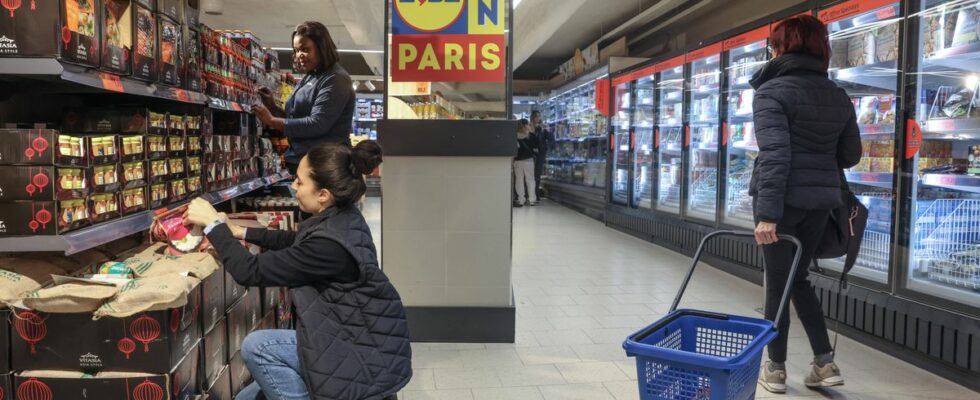No more “influencers”, these star influencers accused of promoting fraudulent trading services, online betting, cosmetics, food supplements or even “slimming” programs. Now make way for “good deals” influencers who post daily online “low price” operations on everyday consumer products.
First used to promote beauty products or fashion items, social networks like YouTube, TikTok or Instagram are now a way to share good deals from discount or destocking brands like Lidl, Action, Stokomani, Noz or even Gifi. With exploding inflation and a growing purchasing power crisis, the videos posted by these new genre influencers are watched by millions of Internet users every day.
“Helping people on a daily basis”
“Nice Shopping” started posting his videos two years ago. “Basically, I was in professional transition following the Covid and I did it to share with my girlfriends and my relatives to laugh, then very quickly a small community was formed”, she explains to 20 minutes. Today, the influencer is followed by more than 110,000 people on Instagram, 70,000 on YouTube, 80,000 on TikTok and 90,000 on Facebook. Some of his videos, in short format, have been viewed millions of times, especially on TikTok.
“My days are punctuated by the arrival days of the brands and by the promotions offered by the supermarkets. Every day, I spend several hours looking for good deals, going to film in stores and then posting them online on different platforms. I choose my products according to what my community is looking for: decoration, everyday items, fashion, beauty, food”, explains the influencer, whose objective is “to help people on a daily basis”.
“The purchasing power crisis is also felt on social networks”
Like “Joli Shopping”, many of them have launched themselves online in the niche of good deals and “good deals” purchases. Mrs Lidl, Toria Lifestyle, Family Forever, Paula Latina or Bons plans de Mimi…, all are followed daily by hundreds of thousands of Internet users. “My Instagram and TikTok accounts have literally exploded with inflation”, recognizes “Joli Shopping”. “It allows my community to be aware of the good deals to grab and when, because quantities are limited. It also allows them to judge whether it is worth going to the store,” she explains.
“There is a real crisis in purchasing power, it is a growing concern of the French, and we see that the same thing is felt on social networks”, confirms Fanny Shin, brand communication specialist at Accenture Song. . On YouTube, “hauls” [déballages de commandes mode ou beauté] have flourished over the past decade. But now, “we see shopping unpacking and a real focus on prices” of these products, she notes.
If these videos are so popular today, it is also because “this communication is more authentic for consumers, it comes from a person they trust, they adhere to their ideas”, explains Madeleine Cazali. , consultant at Kea & Partners. “It’s a real community of mutual aid, there is a certain form of transparency, of trust between us”, recognizes “Joli Shopping”. “Through my videos, we exchange, we discuss the quality of the products. I have regular interactions with my community in private messages, via comments and physically when I meet them in store, “says the influencer, who until today has never entered into partnerships with these brands. nor monetized his videos.

